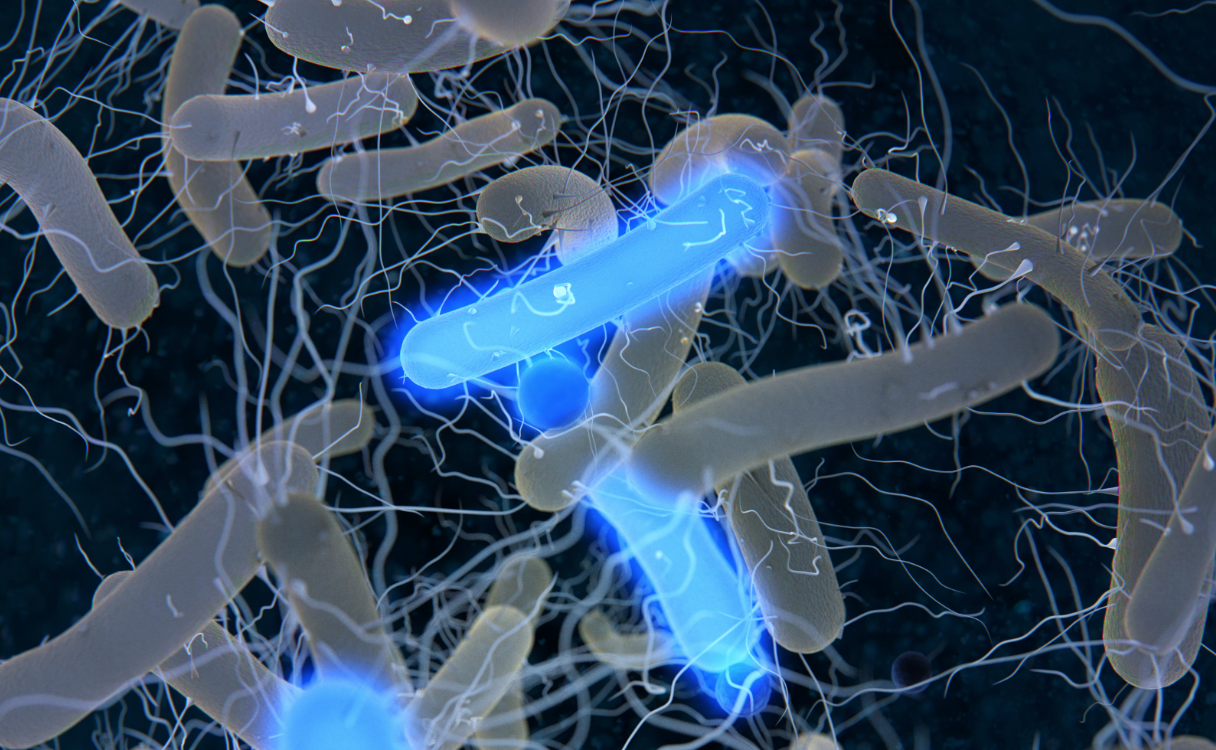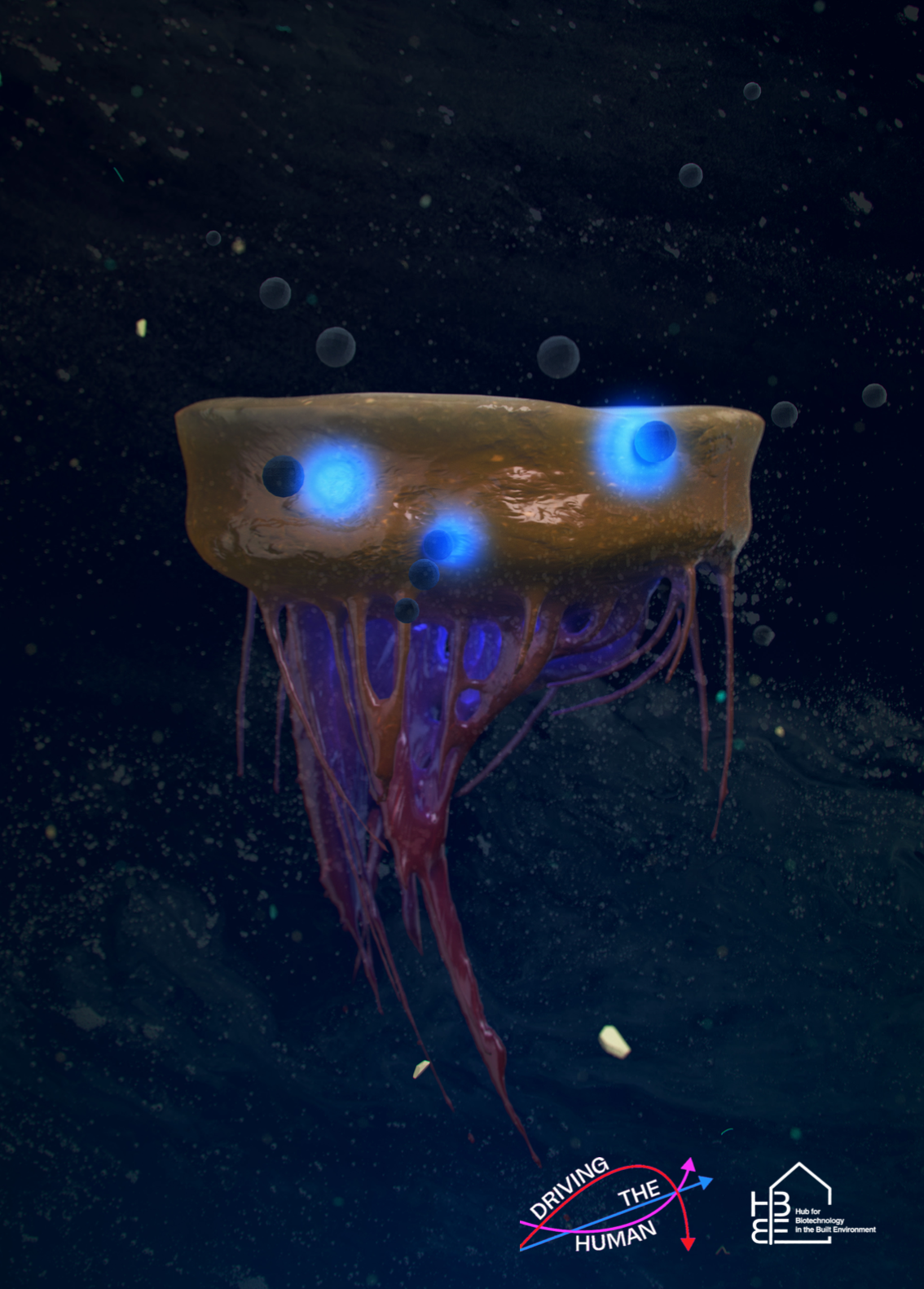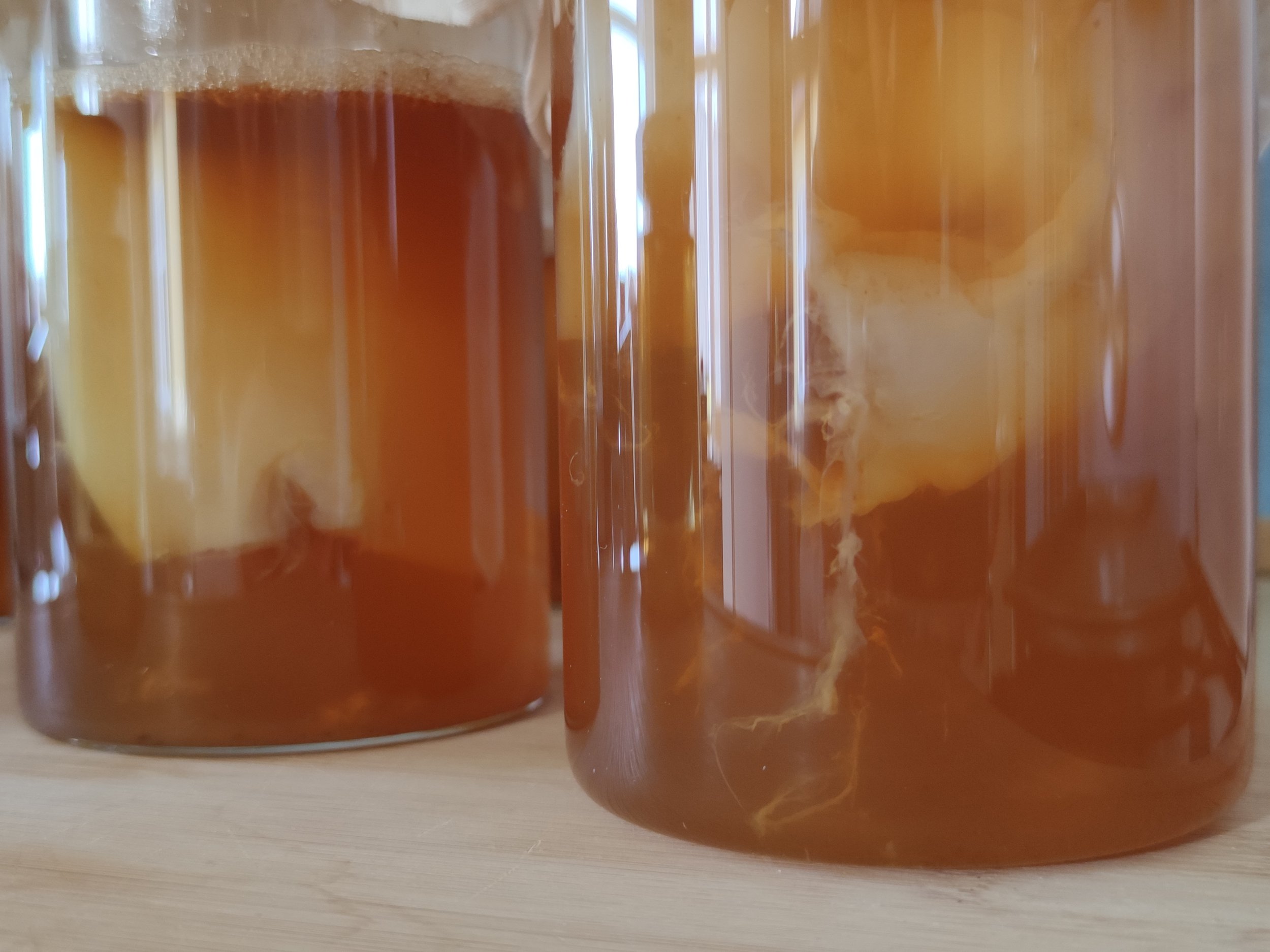
What if living interfaces consisting of microbial consortia could create an ‘ambient living intelligence’ that responds to its human inhabitants and surroundings?
Introducing ALI (Ambient Living Intelligence)
This project introduces the concept of human-bacteria interfaces (HBI) and the HBI prototype ALI (Ambient Living Intelligence). As defined by this design research project, HBIs are tangible, living interfaces consisting of microbial consortia that interact or respond to stimuli from their surroundings by emitting signals accessible to humans through touch, smell and sight.
The project led by a multidisciplinary group of PhD researchers based at the Hub for Biotechnology in the Built Environment made it to the next stage of the Driving The Human selection.
Driving The Human is a catalyst for experimentation, shaping sustainable and collective futures that combine science, technology, and the arts in a transdisciplinary and collaborative approach.
The Human-Bacteria Interfaces Concept by Anne-Sofie Belling (Creative Technologist), Bea Delgado Corrales (Microbiology), Romy Kaiser (Living Textiles) and Paula Nerlich (Living Textiles) was successfully selected to be one of the Final 7 Concepts for an Eco-social Renewal. The next stage of the Driving The Human Journey will comprise mentoring events with experts from the Driving The Human Network, funding support for the prototype development as well as an end exhibition in Berlin November 2022.









This project introduces the concept of human-bacteria interfaces (HBI) and the HBI prototype ALI (Ambient Living Interface). As defined by this design research project, HBIs are tangible, living interfaces consisting of microbial consortia that interact or respond to stimuli from their surroundings by emitting signals accessible to humans through touch, smell and sight.
Through the HBI concept and the tangible ALI prototype, this project seeks to explore how interactions with emerging bio-technologies can facilitate meaningful interactions and ways of living between humans and the more-than-human microbial world. Rather than use technology as a human-centred method of mastery over the natural, more-than-human world, technological interventions are within this project designed to facilitate futures in which humankind and microbial beings co-exist symbiotically, each caring for and fulfilling a mutual desire or need within their shared living environment. This design research project therefore explores ways of emphasising humankind’s relational dependencies with the more-than-human, manifesting through the Ambient Living Intelligence - ALI.
